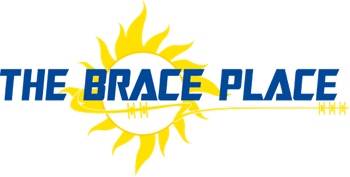The Connection Between Orthodontics and Jaw Health
Orthodontics is often associated with creating straight, beautiful smiles. However, its benefits extend far beyond aesthetics, particularly when it comes to jaw health. Understanding the connection between orthodontics and jaw health is crucial for parents who want to ensure their children’s overall well-being.
Understanding Jaw Health
The jaw plays a fundamental role in various functions, including chewing, speaking, and breathing. Proper alignment of the jaw is essential for these functions to occur seamlessly. When the jaw is misaligned, it can lead to several issues such as:
- Temporomandibular Joint (TMJ) Disorders: These disorders can cause pain, discomfort, and difficulty in moving the jaw. The Temporomandibular Joint is the hinge joint that connects the lower jaw (mandible) to the skull (temporal bone) in front of each ear. This joint allows the jaw to move up and down, side to side, and forward and backward, enabling functions such as chewing, speaking, and yawning.
- Difficulty Chewing and Biting: Misalignment can make it challenging to chew food properly, affecting nutrition.
- Speech Problems: An improper jaw alignment can interfere with speech development in children.
- Breathing Issues: Jaw alignment can impact breathing, potentially leading to sleep apnea or other breathing disorders.
How Orthodontics Can Help
Guiding Jaw Growth
Orthodontic treatments can guide the growth and development of the jaw in children. This is particularly important because children’s bones are still growing and are more malleable, making it easier to correct misalignments early.
Correcting Bite Issues
Orthodontics can address various bite issues, including overbites, underbites, crossbites, and open bites. Correcting these issues helps ensure that the teeth and jaw align correctly, reducing strain on the jaw muscles and joints.
Improving Functionality
Proper alignment of the teeth and jaw improves overall functionality. This includes better chewing efficiency, clearer speech, and easier breathing. Enhanced functionality contributes to better overall health and quality of life.
Preventing Future Problems
Early orthodontic intervention can prevent more severe jaw issues in the future. By addressing problems early, orthodontic care can reduce the need for more invasive treatments later on, such as jaw surgery.
The Role of Early Orthodontic Evaluations
Detecting Issues Early
Early orthodontic evaluations, typically recommended by age seven, allow orthodontists to detect potential jaw and bite issues before they become more severe. Early detection is key to effective treatment and prevention.
Customized Treatment Plans
During an early evaluation, the orthodontist can create a customized treatment plan tailored to the child’s specific needs. This plan might include growth modification devices, braces, or other solutions to guide jaw development.
Monitoring Growth and Development
Regular orthodontic check-ups with an AAO Orthodontist will help monitor the growth and development of the jaw and teeth. This ensures that any emerging issues are addressed promptly, maintaining optimal jaw health.
Signs Your Child Might Need Orthodontic Care
Parents should be aware of signs that indicate a need for orthodontic care. These include:
- Early or Late Loss of Baby Teeth: This can signal underlying alignment issues.
- Difficulty Chewing or Biting: Problems with chewing can indicate misalignment.
- Mouth Breathing: Frequent mouth breathing can affect jaw development.
- Thumb Sucking or Pacifier Use Beyond Age 4: Prolonged habits can impact jaw and teeth alignment.
- Speech Difficulties: Misalignment can interfere with proper speech development.
- Crowded or Misplaced Teeth: Crowding can cause improper jaw alignment.
- Jaw Shifts or Noises: Popping or clicking sounds in the jaw can indicate TMJ issues.
The Importance of Parental Involvement
Parents play a vital role in their child’s orthodontic treatment. Here are practical steps you can take
to support your child’s jaw health.
Encourage Good Oral Hygiene
Teach your child how to brush and floss properly and supervise their routine to ensure they are maintaining good oral hygiene.
Schedule Regular Dental Visits
Regular dental check-ups are essential for monitoring oral health and identifying any early signs of misalignment or jaw issues.
Promote a Healthy Diet
Encourage a balanced diet that supports strong teeth and bones. Limit sugary snacks and drinks that can lead to cavities and other dental problems.
Orthodontics plays a crucial role in maintaining and improving jaw health. Early evaluations and timely interventions can prevent significant problems down the road, ensuring that your child grows up with a healthy, functional, and beautiful smile.
If you’re in Naples and considering an orthodontic evaluation for your child, schedule a free consultation at Brace Place Naples. Our experienced team is here to guide you and your child through every step of the orthodontic journey.



